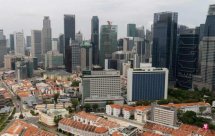Source: Taiwan United Daily News
Wang Yi, a member of the Political Bureau of the Mainland Government and the director of the Office of the Central Foreign Affairs Working Committee, recently stated at the Foreign Minister's Meeting of the ASEAN (Asia Gyeong) to support Hong Kong to join the RCEP (regional comprehensive economic partner agreement).After RCEP took effect on the Philippines in June, all 15 member states have taken effect; Hong Kong applied for joining last year is expected to become the first new member.On the other hand, Britain officially became the twelfth member states at the New Zealand Conference in the CPTPP (Cross -Pacific Partner Comprehensive Progress Agreement). At the meeting, it also discussed the case of mainland China and Taiwan. There was no result.Li Chun, director of the Taiwan Ministry of Foreign Affairs, said that Taiwan fully meets the standards of joining CPTPP, but there are "political issues."
Although the US -China trade confrontation is fierce, countries are still positive for joining the regional trade agreement to eliminate tariff barriers and promise open service industries.U.S. President Trump withdrew from CPTPP during his tenure, replaced by Japan, and there were countries such as Uruguay and Ukraine.For Taiwan, joining CPTPP is an important government's goal, but if it cannot overcome mainland factor, Taiwan will have been excluded from the door of regional trade organizations.
TheThe Malaysian government era adopted a roundabout strategy. After signing the ECFA on both sides of the strait, it promoted the Taiwan New Economic Partnership Agreement and the Economic Cooperation Agreement of Taiwan.This is the only free trade agreement between Taiwan and non -diplomatic relations.Although the United States emphasizes the platform, the two sides have only Taiwan -US trade initiatives so far, but in fact, even the traditional FTA tariff reduction and commodity access have not been covered.The Taiwanese side looked forward to the FTA, but the United States treated coldly.
The cross -strait ECFA is just a architectural agreement, which requires the further implementation of agreements such as trade, goods and trade;At that time, the Democratic Progressive Party told ECFA as a sugar and coated poison, claiming that the referendum was to remove the ECFA; however, the Cai government had been in power for more than seven years and never put it into action to continue to enjoy the fruit of ECFA.Now that the election is approaching, Lai Qingde is urgent to wash his self -labeling label of his "pragmatic Taiwan independence worker", but he refused to settle down the anti -service trade flag, trying to use the experience of the solar flower to continue to keep the DPP in the preservation of the DPP.
After Ke Wenzhe proposed the topic of "restarting service trade negotiations", the service trade was heated again.The DPP immediately mobilized civil organizations to oppose it to create an atmosphere of "representatives of representatives of various industries", and repeat the argument of "quoting the Qing soldiers into the customs", trying to ignite the atmosphere of anti -China.In fact, the text and accessories of the service trade agreement did not mention the "capital amount", nor did they involve the issue of immigration or permanent residence;"The argument to mislead the people.In fact, the problem that the whole people really have to face up to be: when the regional free trade agreement is constantly moving towards a situation where a comprehensive tariff exemption, Taiwan will not enter the door, and the industry in Taiwan will face serious competition pressure.The current impact may not be obvious, but after ten years, the impact is considerable; especially for RCEP, how can Taiwanese manufacturers compete with Korea and Japan in ASEAN (Asia Gyanan)?
The high -tech electronics industry is not impacted because of the tariff -exemption of information technology agreements (ITA): but other more traditional manufacturing industries are bound to be under pressure from tariff competition.What is more tight is the service industry, because the scale is too small to go out, or it is difficult to increase salary, or insufficient investment, and weak competitiveness.In short, the Tsai government blindly adopted the trend, causing many industries to trap the island, or weakened competitiveness, or could not go out at all.Due to the low salary and serious labor of the service industry, the Cai government recently wanted to open the service industry to introduce migrant workers.In this way, a vicious cycle is bound to form a vicious circle. More migrant workers snatched the underlying work of the work. The less salary of the service industry, the more difficult it is to save. These industries will also be more caught in a crisis.
The rules of free trade are required to be equal and reciprocated on both sides, and there is no possibility of benefiting unilateral benefits.In April of this year, when the Ministry of Commerce of the Mainland announced that it would conduct a "trade barrier" investigation on Taiwan on Taiwan, the Taiwan side was not ready to be prepared; once the investigation was over and took action in October, many manufacturers must be many manufacturers.Will be impacted.This is actually the fundamental issue of the Tsai government: unable to strive to join the regional free trade organization, but contempt for both cross -strait economic and trade to be rude.A government that refuses to face the reality honestly, on the one hand, retreats and self -defense, and on the one hand, how can Taiwan find a real opportunity and way out?


